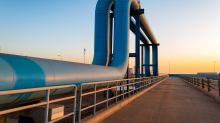Natural Gas Feb 26 (NGG26.NYM)
| Pre. Settlement | N/A |
| Settlement Date | 2026-01-28 |
| Open | 4.3080 |
| Bid | 4.3140 |
| Last Price | 4.3050 |
| Day's Range | 4.3080 - 4.3310 |
| Volume | |
| Ask | 4.3270 |
- Yahoo Finance Video
Gas prices could rise $0.10 per gallon this summer: EIA
Americans may feel a strain on their wallets at the gas pump during the upcoming summer season. According to a report from the US Energy Information Administration (EIA), gas prices are projected to rise by approximately 10 cents per gallon over the summer months, potentially reaching an average of $3.70 per gallon nationwide. Yahoo Finance's Ines Ferré breaks down the factors contributing to this anticipated surge in gas prices. For more expert insight and the latest market action, click here to watch this full episode of Catalysts. This post was written by Angel Smith
 Yahoo Finance
Yahoo FinanceNatural gas prices are falling — why these analysts are bullish
Natural gas could rise sharply by the end of the year. Here's why.
- Yahoo Finance Video
Gas prices are 'polarizing number' ahead of election: GasBuddy
As US gas prices continue their upward trajectory, the issue has become "a polarizing number," according to GasBuddy's Head of Petroleum Analysis Patrick De Haan. He joins Market Domination Overtime alongside Yahoo Finance's Rick Newman to discuss the underlying factors. De Haan notes that the average gas price has increased by over 60 cents from the January lows, and could reach $3.70 in the next couple of days as the summer season approaches. However, he believes prices are nearing "the potential end of the spring rally." Importantly, De Haan highlights the political significance of gas prices, particularly ahead of the upcoming election. If prices were to go above the $4 per gallon threshold, De Haan believes it could negatively impact President Biden's approval numbers, calling it a "danger zone" from a political standpoint. Furthermore, De Haan identifies fragmentation as one of the key drivers behind persistently higher gas prices. The fact that different regions use various gasoline blends, all under the control of various entities, creates an environment that "could use improvement" and contributes to the elevated prices seen across the country. For more expert insight and the latest market action, click here to watch this full episode of Market Domination Overtime. This post was written by Angel Smith